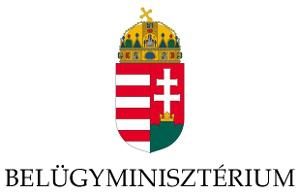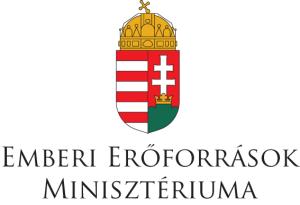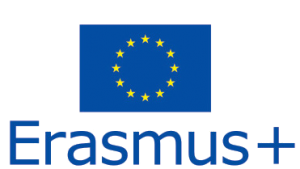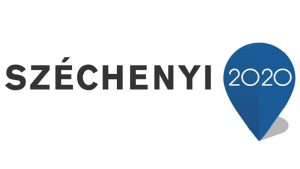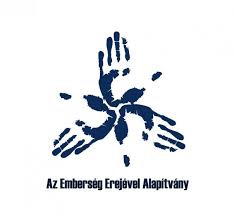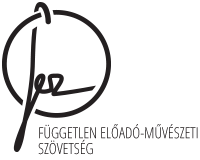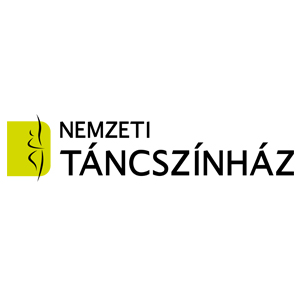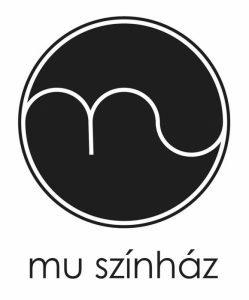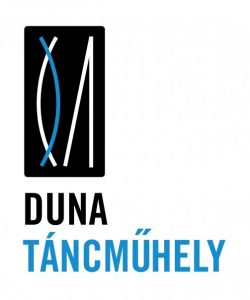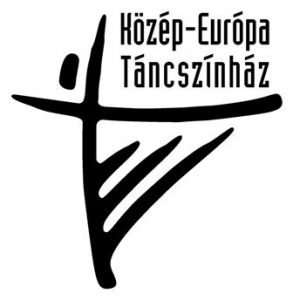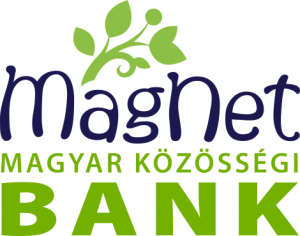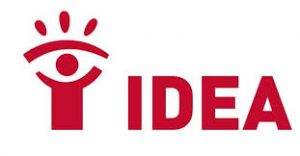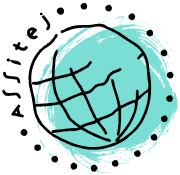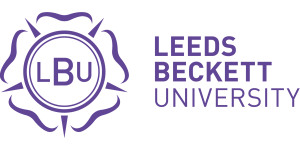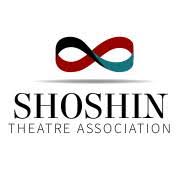Consortium leader:
Hungary: Káva Theatre in Education Company (Káva Kulturális Mûhely)
Consortium members:
Associate partners:
Introduction of the partners
Hungary: The Káva Drama/Theatre in Education Association is a public benefit organisation providing arts and education projects, operating as an association since 1996. As the first Theatre in Education company in Budapest our main task is to create complex theatre / drama in education programmes, in which we analyse social and moral problems through action with the participants. The young people are not only observers, but also the writers, directors and actors of the story which is created through thinking, analysing, compression, transformation and in many cases through performing certain situations. In our work we aim at reaching high aesthetic quality and the complex application of various learning forms. The significance and effect of our programmes for children and youth goes far beyond the traditional frames of theatre. Teaching democracy, examining age problems, social and moral issues are in the focus of our work. When working with children we use theatre as a tool to find ways to a deeper understanding. We work with groups of 9-18-year-old children and young people – many of them disadvantaged – all over the country.
@ Address: H-1022 Budapest
Marczibányi tér 5/a.
Hungary
Tel/Fax: +361 315-0781
E-mail: kava@kavaszinhaz.hu
Website: www.kavaszinhaz.hu
The Netherlands: LEESMIJ opens the discussion on socially relevant themes by using interactive theatre. LEESMIJ creates awareness and breaks taboos on subjects like illiteracy, power abuse, bullying and sexual intimidation. By using forum theatre (inspired by Augusto Boal) it goes beyond talking and thinking; the audience is invited to take an active role in problem-solving and testing possible alternative behaviours on stage, in this way practising for real life.
@ Address: Stichting LEESMIJ
Postbus 265
6700 AG Wageningen
Tel: +31 6-47688963
Email: info@leesmij.org
Website: www.leesmij.org
Poland: University of Gdansk was founded in 1970. It is the largest institution of higher education in the Pomeranian region. It offers the possibility of studying in almost thirty different fields with over a hundred specialisations. Such fields as Biology, Biotechnology, Chemistry, Psychology and Pedagogy are among the best in the country. There are almost thirty-three thousand students in the nine faculties.
The Institute of Pedagogy, which hosts the DICE project in the University of Gdansk, educates social workers, culture animators, teachers, etc. It is the only university in Poland that offers two-year Postgraduate Drama in Education Studies. Curriculum of the studies contains such courses as: Sociodrama, Psychodrama, Developmental Drama, Theatre Workshops, Active Learning and Teaching Methods etc. The Institute of Pedagogy collaborates with Shakespeare Theatre in Gdansk for drama in education practicum for students.
@ Address: Instytut Pedagogiki UG
ul. Bazynskiego 4
80-952 Gdansk
Poland
Tel: +48 58 523 42 05
Fax: + 48 58 523 42 58
Email : arusil@ug.edu.pl
Website : www.ug.edu.pl
Romania: SIGMA ART Cultural Foundation for Youth is a Cultural-educational and Artistic resource centre which offers support (behaviour, attitude) to young people, artists and to other organisations which have similar objectives. It is the only Theatre in Education group in Bucharest, Romania, with strong similar international connections. Using theatrical techniques, in which we analyse social and moral problems through workshops and performances, the youngsters became, in time, full participants and leaders of the artistic and educational process. The entire process of selecting the scripts and producing the performances is closely assisted by professional directors, actors and dancers. The performances take place mostly at Sigma Art’s Studio, in high schools, universities, professional theatres in Bucharest, national and international theatre festivals. One of our aims is to develop in our country a new method of working with adults and youngsters that will have a social impact and successfully contribute to social inclusion. Basically, Sigma Art Foundation is oriented into two main activity fields: Education and Art performance.
@Address: Str.Mitropolitul Nifon 14
Sector 4 Cod 040502
Bucuresti
Romania
Tel: Sigma Art STUDIO: +40 21 335 33 41
E-mail: sigma_art_romania@yahoo.com
Skype: sigma_art_romania
Web site: www.sigma-art-romania.ro
Slovenia: Društvo ustvarjalcev Taka Tuka was established in the year 2002 as a result of our years of work with deaf and hard of hearing children and youth in the field of theatre. We soon discovered that through creativity we can contribute greatly to their development on their way to adulthood. The basic aim of our Association is development, research, implementation and promotion of theatre and drama as a tool for personal development and teaching personal, social and emotional skills.
Main activities of our Club are: creative workshops (theatrical, dance and fine art) for children, youngsters and adults; seminars for mentors, teachers of main-stream schools and specialists who work with people with special needs; parenting schools; seminars for deaf adults. In our Club more than 60 children and young people are permanently involved in different activities.
@ Address: Vodnikova cesta 30
1000 Ljubljana
Slovenija
Tel: + 386 31 322 569
E-mail: info@takatuka.net
Website: www.takatuka.net
United Kingdom: Big Brum Theatre in Education Company (Big Brum) is a registered charity founded in 1982 in Birmingham, England. Big Brum seeks to provide high quality theatre in education programmes for children and young people of all age ranges and abilities, in schools, specialist units, colleges, community environments and arts venues. The Company is committed to bringing theatre to young people who would not normally have access to it. As practitioners, the Company proceeds from the premise that children are not undeveloped adults but human beings in their own right. Art is a mode of knowing the world in which we live and Big Brum uses educational theatre and drama to work alongside young people to make meaning of their lives and the world around them. Big Brum has developed a 15-year artistic relationship with the world renowned British dramatist Edward Bond, and his work and theoretical approaches to drama have strongly influenced the artistic model of the Company.
@ Address: Pegasus Primary School
Turnhouse Road
Castle Vale
Birmingham B35 6PR
United Kingdom
Tel: +44 121 464 4604
E-mail: tie@bigbrum.plus.com
Website: www.bigbrum.org.uk
Czech Republic: The Charles University founded in 1348 is one of the oldest universities in the world and nowadays belongs to the most eminent educational and scientific establishments in the Czech Republic, which are recognised in both the European and global context. Scientific and research activities form the basis on which the Doctoral and Masters programmes are based at Charles University. Over 42,400 students study at Charles University in more than 270 accredited academic programmes with 600 departments.
The Department of Education hosts the DICE project. Drama in Education is part of The Personal and Social Education, which is one of the specialisations of The Department of Education. We also co-operate with The Theatre Faculty of the Academy of Performing Arts in Prague, which among others educates drama teachers.
@ Address: Filozofická fakulta UK
nám. Jana Palacha 2
116 38 Praha 1
Tel : +420 221619111
Fax : +420 221619360
Email: ped@ff.cuni.cz (this is email to department of education, which is part of the faculty) Website: http://www.ff.cuni.cz/
Norway: Bergen University College is a state institution of higher education, established in August 1994 by the merging of six former independent colleges in Bergen, Norway. The total number of students is about 7,000, and there are 750 academic and administrative staff.
Bergen University College (Høgskolen i Bergen) is organised in 3 faculties: Faculty of Education, Faculty of Engineering, Faculty of Health and Social Sciences. The College has a strong tradition within teacher education in the arts: drama, dance, music, visual arts and Norwegian (language and literature). The Faculty of Education has a centre for arts, culture and communication (SEKKK).
The Drama Department has pioneered studies in drama education in Norway since 1971, when the first one-year full-time course for drama teachers in the Nordic countries was established. The department offers a variety of drama courses, from introductory drama in the general teacher educations, via Bachelor-level courses, to a 2-year Masters degree in drama education.
@ Address: Bergen University College
Faculty of Education
Drama Department
Landaassvingen 15
N-5096 Bergen
Norway
Tel: +47 55585700 (operator) & +4755585700/+47 55585713
Fax: +47 55585809
Email: AL-Drama@hib.no & kari.heggstad@hib.no
Website: http://www.hib.no/avd_al/drama/index.htm
Palestine: Theatre Day Productions (TDP)
“I go to the theatre because I want to see something new, to think, to be touched, to question, to enjoy, to learn, to be shaken up, to be inspired, to touch art.”
Theatre Day Productions wants drama, theatre, and creative activities to be a regular part of the lives of young people in Palestine so that kids can find their individual voices, their sense of self, and discover their creative life.
The Arabic name of the company, “Ayyam Al Masrah” (Theatre Days) comes from the notion that some day each Palestinian child will have at least one ‘theatre day’ during his or her school year. TDP makes plays with adults and performs for kids. We also make plays with kids who perform for kids. TDP has set in motion both a youth theatre company and an actors training programme. The programme is carried out on a regional basis: at present in the Gaza Strip and in the West Bank.
@ Address: PO Box 18669
91184 Jerusalem
Tel: +972 2 585-4513
Fax: +972 2 583-4233
Email: tdp@theatreday.org
Website: www.theatreday.org
Portugal: The mission of the Technical University of Lisbon (UTL) is to promote, develop and transmit scientific, technical and artistic knowledge to the highest standards, encouraging research, innovation and entrepreneurship, and adapting to the changing needs of society in terms of ethics, culture and internationalisation.
UTL is a 21st-century research European university, alert to the new challenges posed by society, and a leader in its areas of knowledge where professionals and researchers are trained to the highest standards.
The Faculty of Human Kinetics (FMH) is the oldest sports and physical education faculty in Portugal. It became part of the Technical University of Lisbon in 1975. It is the fruit of its long history, marked by successive reformulations of its objectives and by its adaptation to society’s needs, as these were interpreted by the institutions that preceded it – the National Institute of Physical Education (INEF) from 1940 to 1975 and the Higher Institute of Physical Education (ISEF) up to 1989.
Originally an institution that focused on physical education in schools, with a strong emphasis on pedagogy, the Faculty is nowadays open to a wider range of study areas of interest to different sectors of society – the education system, sports, health, industry, and the arts – with which it cooperates in a lively and fruitful way.
@ Margarida Gaspar de Matos
Address: Estrada da Costa
Cruz Quebrada
1499 Lisboa codex
Portugal
E-mail: mmatos@fmh.utl.pt
Webpages: www.utl.pt, www.fmh.utl.pt, www.aventurasocial.com
Serbia: NGO CEDEUM Centre for Drama in Education and Art was founded on October 29th 1999, but its founders have been continually working in this field for the past twenty-five years, as promoters of drama/theatre in education and arts. CEDEUM gathers experts from this field in Belgrade and has a widespread network of associates, both from Belgrade and the whole country. The goal of CEDEUM is further promotion of drama and theatre in all aspects of educative, artistic and social work through projects, workshops, seminars, expert meetings and work presentations. CEDEUM is particularly engaged in education of educators and training of artists, as well as seminars and training programmes based on Drama in Education and Theatre in Education methodology for preschool teachers, and teachers in elementary and secondary schools in Serbia. CEDEUM experts are active in the process of involving drama in schools, and take an active role towards influencing national policies for promotion and introduction of drama activities in the educational and cultural system and social work. CEDEUM is also an organiser of “Bitef Pollyphony”: a special drama/theatre programme within the Belgrade International Theatre Festival BITEF – New Theatrical Trends (mid-September) focused on national, regional and international exchange of drama/theatre experiences, collaboration, networking, workshops and work presentations in the field of arts, education and social work. CEDEUM is a member and National Centre of IDEA – International Drama/Theatre and Education Association.
@ Address: Pančićeva 14, 11000 Belgrade, Serbia
Programmes: Cultural Institution Ustanova kulture “Parobrod”, ex Centar za kulturu “Stari Grad”, Kapetan-Mišina 6a, 11000 Belgrade, Serbia
Tel: + 381 11 2 639
Fax: + 381 11 2 183 792
E-mail: cedeumidea@gmail.com
Website: www.cedeum.org.rs
Sweden: Culture Centre for Children and Youth in Umea develops and supports cultural activities for the younger generation in Umea, including networks for support and co-operation in this area, in-service training in relevant fields for teachers and others who come into contact with children and young people in the course of their work, cultural programmes for pre-schools and other types of school, and public performances for children and family audiences.
Cultural education projects are conducted in schools and in the form of training and guidance for teaching staff involved in creative activities for children and young people. The “Teatermagasinet” drama groups for children and young people in the age range 10-19 are a major aspect of the operations; and theatre groups for physically impaired children are a high priority, as is the use of Theatre in Education. A drama festival with all children takes place in May every year.
The City of Umea is the largest city in northern Sweden and also one of the fastest growing cities. Umea has two universities, and a population of 114,000, with an average age of 38. Over half of the people who live here are from outside the region. Umeå will be the European Capital of Culture in 2014, along with Riga. Umeå wishes to establish itself as one of Europe´s many cultural capitals. A proud, forward-thinking city in an integrated and multifaceted Europe built on participation and co-creation, characterised by curiosity and passion. The program of Umeå 2014 is inspired by the eight Sami seasons, and the year will entail many opportunities for inspiring meetings and cultural exchanges.
Address: Culture Centre for Children and Youth, Umea kommun, Umea Kultur, 901 78 Umea, Sweden
Tel: +46 901 63484
E-mail: helge.von.bahr@umea.se
Website: www.umea.se/kulturcentrum

